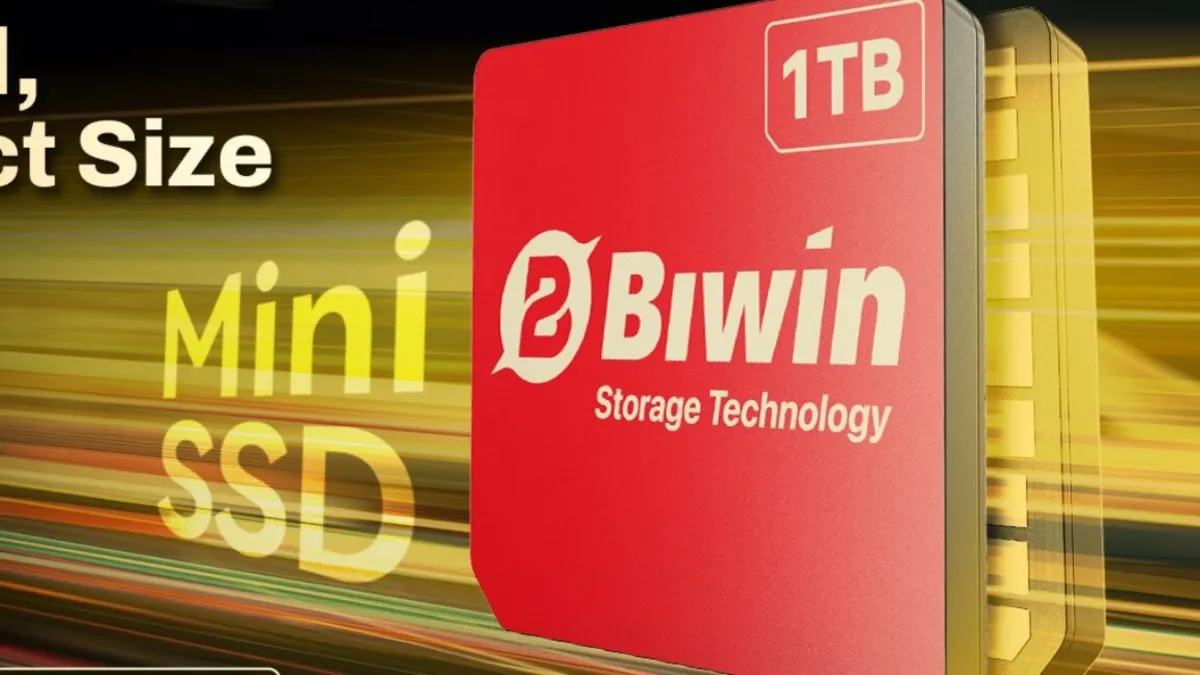
Earlier this year, Nintendo played a pivotal role in popularizing the microSD Express standard by making it a requirement for the new Switch 2 console. Initially created in 2019, this specification had remained largely unnoticed for years. The reason? The availability of cheap and plentiful non-Express microSD cards, which were generally fast enough for everyday usage. Furthermore, most hardware at the time did not support microSD Express cards, limiting their appeal and adoption.
However, the Switch 2 demanded performance levels comparable to that of an internal SSD to effectively run games. This necessity arose because the more powerful Switch 2 is capable of handling a wider array of titles designed for systems equipped with SSDs, such as the PlayStation 5, the Xbox Series S and X, and high-performance PCs. This shift has sparked a renewed interest in faster, removable storage solutions.
In this evolving landscape, companies are striving to push the boundaries of fast, removable storage. A notable innovation comes from a Chinese company named Biwin, which has developed a revolutionary product known as the Mini SSD. Measuring just 15 by 17 mm, this compact card boasts impressive read speeds of up to 3,700MB per second, thanks to a two-lane PCI Express 4.0 interface.
While the current microSD Express standard can theoretically support similar peak speeds when connected via two PCIe 4.0 lanes, the reality is that most existing cards max out around 900MB per second, which reflects the bandwidth limitations of a single PCI Express 3.0 lane. Originally showcased in March, Biwin's Mini SSD employs LGA packaging, allowing it to integrate NAND chips and an SSD controller onto very small cards. These cards are then placed into small metal trays and inserted into devices, much like a SIM card.
According to reports from The Verge, the Mini SSD is gaining traction in the gaming community, with two Chinese-made AMD-based gaming portables—the GPD Win 5 and the OneXPlayer Super X—advertising support for these innovative cards. Biwin has announced that the Mini SSD will be available in capacities ranging from 500GB to 2TB, addressing the increasing need for fast storage solutions in portable gaming systems.
One of the driving forces behind the demand for faster storage solutions is the increasing size of modern video games. A 2023 analysis from TechSpot indicated that game sizes have risen at an average rate of approximately 6.3GB per year from 2012 to 2023. While games that exceed 100GB are not the norm, they are becoming increasingly common.
This growth in size is attributable to various factors, including advancements in graphics and the necessity for higher-resolution textures that enhance the gaming experience on 4K monitors and televisions. Additionally, TechSpot highlighted that narrative-heavy games, such as The Last of Us Part 1, require substantial audio files and support for multiple languages, significantly impacting storage requirements. For instance, nearly 17GB of storage is dedicated to data unrelated to graphics in The Last of Us, a size larger than many entire games from a decade ago!
To illustrate this trend further, consider the install sizes of the Mac version of Cyberpunk 2077. While the Steam, Epic Games Store, and GOG versions of the game are around 92GB, the version available on the Apple App Store is a staggering 159GB. This increased size is primarily due to the inclusion of all voiceovers in the supported languages, a necessity stemming from App Store regulations that mandate all potential files be present during review.
Clearly, there is a pressing need for fast storage upgrades that do not require users to disassemble their consoles or PCs. Whether the solution lies in the emerging Mini SSD, an improved iteration of the microSD Express standard, or another yet-to-be-discovered storage format remains to be seen. As the gaming industry continues to evolve, the demand for enhanced storage solutions will likely grow, prompting further innovations in this vital area.